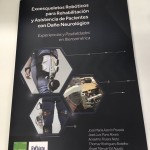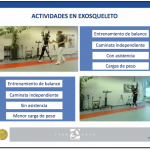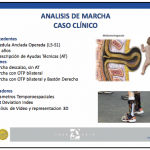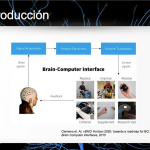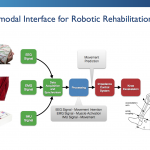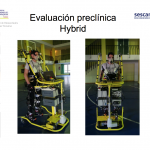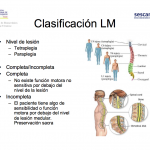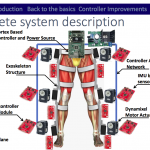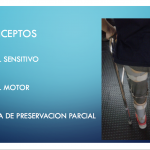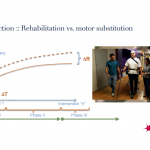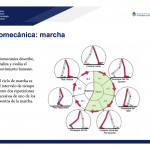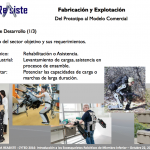Red Iberoamericana de Rehabilitación y Asistencia de Pacientes con Daño Neurológico mediante Exoesqueletos Robóticos de Bajo Coste – REASISTE
Patients with neurological damage are a very disadvantaged group in Latin America that has not been dedicated to a coordinated transnational and multidisciplinary effort of clinical centers, research centers, universities and companies. Neurological damage is one of the main causes of disability, with the number of people with disabilities in Ibero-America exceeding 72 million (affecting approximately 11% of the total population of Ibero-America). The main objective of Reasiste is to establish a broad working forum to enable and facilitate cooperation and the exchange of knowledge among stakeholders from Ibero-America working in the field of rehabilitation and care of patients with neurological damage. The network is articulated around the development of one or several robotic exoskeletons (ERs) to improve the rehabilitation and assistance of patients with neurological damage. Thereby, once the network is completed, several ERs will be available that can be used by clinical centers in rehabilitation therapies and assistance to patients with neurological damage. Although the people who will benefit first from the developments of this network are the group of patients with neurological damage, the ERs of the network could be used to improve the health of patients with other pathologies, such as, for example, patients with poliomyelitis or botulism.
The book Exoesqueletos Robóticos para Rehabilitación y Asistencia de Pacientes con Daño Neurológico | Experiencias y Posibilidades en Iberoamérica, the workshop: «Experiences and advances in technologies for rehabilitation and functional compensation in Iberoamerica, with a focus on Wearable Robotics» within ICNR 2016 and the Curso Introducción a los exoesqueletos robóticos de miembro inferior are some of the activities and materials that Reasiste has produced.

